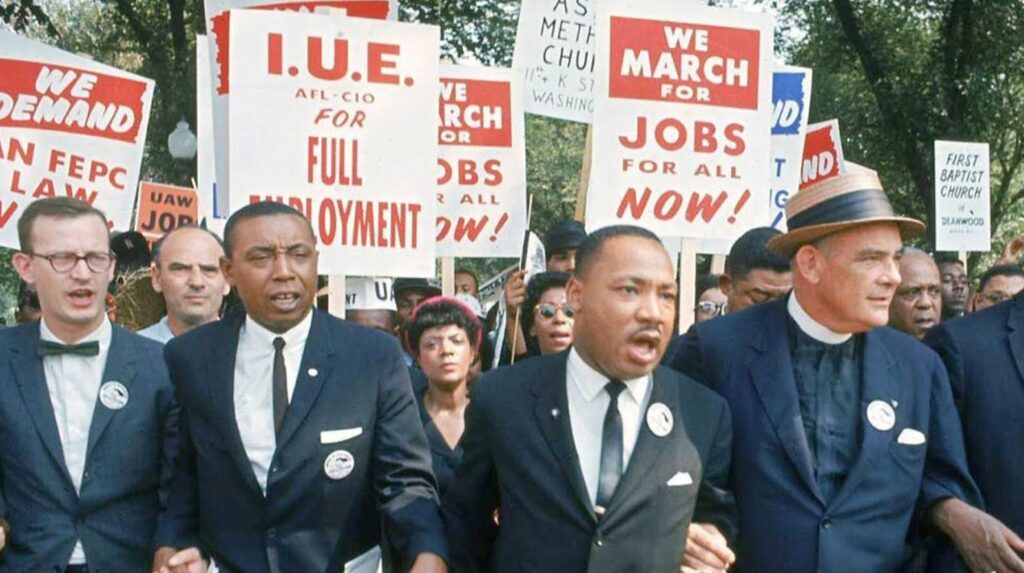Now more than ever, social change leaders need exposure to different concepts of leadership in order to tackle the challenges we face globally. Searching for solutions to the personal, interpersonal, cultural, and systemic obstacles we face must be embedded in an ability to sense the whole, a capacity to open up to shared wisdom, and a willingness to align both intentions and actions to a daily practice of recognizing our common humanity.
The Collective Leadership Certificate Program was born out of that effort to facilitate learning that inspires a powerful sense of responsibility for and connection to the wholeness of our professional experiences. It offers a truly unique opportunity that delves into the inner work needed for leaders to connect to a team, trust in everyone’s participation, and work within a shared clarity of purpose.
With much anticipation and enthusiasm, we kicked off the 2022 Collective Leadership Certificate Program cohort in January. With participants spanning three continents, our training and coaching sessions over the last few months proved to be a deep dive into the challenges we face when it comes to the relational process skills needed to lead collectively.
As we continue this journey with a fantastic group of leaders, we thought we’d take the opportunity to share with you some of our standout moments that you can apply to your everyday leadership.
Here are two key takeaways for you to explore:
Embrace Your Stretch Zone
We all need time in our comfort zone, when we have the serenity and solace to reflect on our experiences; however, in order to transform our leadership, we must invite ourselves into the stretch zone. Our stretch zone lies just outside of the security of what we’ve known and how we’ve generally operated. In order to find the stretch zone, we each must know ourselves enough to determine the patterns of thought and behavior that reside in our comfort zone. With this awareness, we slowly expand to the edges of that comfort zone, using self inquiry to imagine other ways of thinking and acting that might stretch us into change. We find our edges. When we root ourselves using somatic grounding practices, we can come to know the physical sensations that we experience when we begin to push out of our comfort zones. What we’ll find with practice is that our comfort zone expands as we learn and grow.
Expand Your Awareness of Reactive and Creative Tendencies
In the program, we use The Leadership Circle Profile 360 Feedback assessment, which offers an incredible framework to understand our reactive tendencies and creative competencies as a leader. Creative competencies are rooted in connection, love, purpose–they invite us into an inside-out way of leading. They open up the possibility for exploration, service, freedom, expansion, or possibility itself. Reactive tendencies are more of an outside-in way of leading that are often formed by the ways we seek safety or comfort, particularly when we feel our value and worth are at risk or threatened by the relationships, culture, and systems we’re operating within. These tendencies fall into three main categories: complying, protecting, and controlling.
Our collective reliance on these reactive tendencies are part of what keeps structures of oppression in place. If leadership is built from these reactive tendencies, outdated systems of leadership in which a few hold power over others are often perpetuated and hard to change.
The invitation in understanding our own leadership through this framework is to develop a greater awareness about when and why we choose to act in various ways and to expand the options we have for acting in any given moment. Holistic awareness can allow leaders to explore questions like:
- What does safety and worth mean for this group in this moment?
- Where am I /are we making assumptions about what “should” be?
- What are our options when we ground ourselves in purpose and connection rather than worry and fear?
Collective leadership requires a new way of thinking, acting, and being. These new ways are rooted in beliefs, values, and a politic of power that often run counter to existing habits of leadership in our dominant culture of work. Doing the challenging inner work so that you may transform your ways of leading, following, and engaging others at work is foundational to cultivating the willingness to transform your leadership. A hallmark of the Collective Leadership Certificate program is that it allows participants to integrate and apply their growing awareness into their day-to-day actions while immersing in a community of others attempting to do the same.
Applications for the next cohort open this fall. If you’d like to learn more about the CLCP, visit us at our website.










